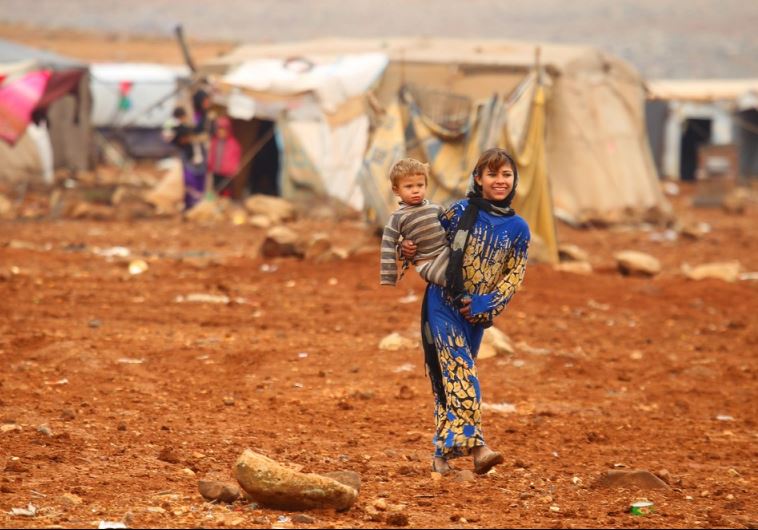For first time during Syria war, Israel opens border for humanitarian aid
“Israel finally agreed to allow in three types of aid: medical, educational, and food,” American-Israeli organizing aid flow tells Post.
 An internally displaced Syrian youth carries a baby inside a refugee camp in the Hama countrysideUpdated:
An internally displaced Syrian youth carries a baby inside a refugee camp in the Hama countrysideUpdated: